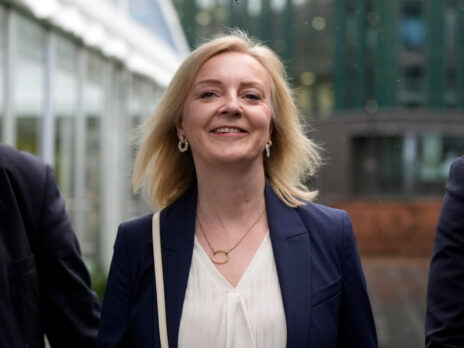
After Theresa May became Prime Minister, she cast herself as a critic of free market Thatcherism. Unlike many Conservatives, she spoke of the state as an ally, rather than an enemy, and vowed to intervene to fix “broken markets”. May recognised that the Brexit vote was a symptom of economic and social discontent, rather than merely hostility to the EU.
The 2008 financial crisis led to an enduring loss of faith in economic elites. Capitalism has since failed to deliver on its promise of rising living standards for the majority. And voters have grown ever more weary of public spending cuts. In recognition of this, the 2017 Conservative manifesto declared: “We do not believe in untrammelled free markets. We reject the cult of selfish individualism. We abhor social division, injustice, unfairness and inequality. We see rigid dogma and ideology not just as needless but dangerous.” (Though the policies were not as radical as the rhetoric.)
May was denied a majority at the election. But Labour’s surge confirmed that she was right to recognise the public’s grievances. The sustained support for Jeremy Corbyn suggests that this is no mere electoral blip. Yet the day after Corbyn’s conference speech, which promised “21st century socialism”, May has launched a full-throated defence of “free market capitalism”.
In a speech to mark the 20th anniversary of Bank of England independence, she declared: “A free market economy, operating under the right rules and regulations, is the greatest agent of collective human progress ever created. It was the new combination which led societies out of darkness and stagnation and into the light of the modern age … That is unquestionably the best, and indeed the only sustainable, means of increasing the living standards of everyone in a country.”
Though this is not strictly at odds with May’s earlier position (she never questioned the fundamentals of the free market), it is a marked shift in rhetoric. Rather than challenging Thatcherite orthodoxy, May now appears to be affirming it. As Ed Balls (no Corbynite) tweeted: “I’m surprised by today’s Theresa May speech. I’m all for open markets. But championing ‘The Free Market’ feels bad economics & bad politics.”
May’s new stance puts her sharply at odds with the public. All of Labour’s headline policies (frequently denounced as “hard left” by the right) enjoy majority support from voters. A YouGov poll, for instance, found that 58 per cent support renationalising the railways, water companies and other utilities (with 17 per cent opposed), 61 per cent support increasing the minimum wage to £10 (with 19 per cent opposed) and 52 per cent support increasing the top rate of tax to 60 per cent (with 23 per cent opposed). There is also majority support for policies such as rent controls (59 per cent), abolishing zero-hour contracts (64 per cent) and introducing universal free school meals (53 per cent). A 2016 YouGov poll found that the public view socialism more favourably than capitalism.
Labour’s 2017 manifesto, which owed more to Keynesianism than Marxism, did not in fact propose the overthrow of the market. Many of Corbyn’s policies would be regarded as mainstream in other European countries (Germany, France and the Nordic states). But that May now feels the need to defend capitalism itself is a measure of how terrified the Tories are by Labour’s rise.






